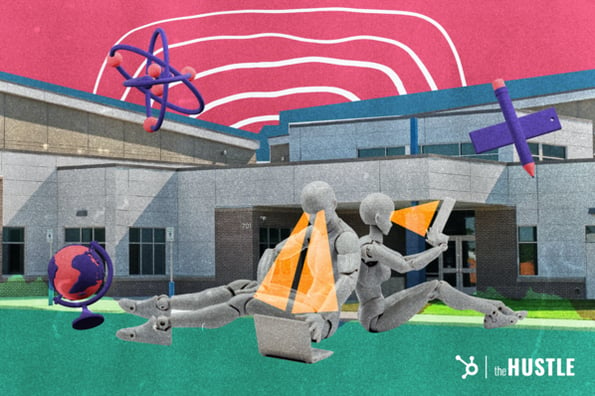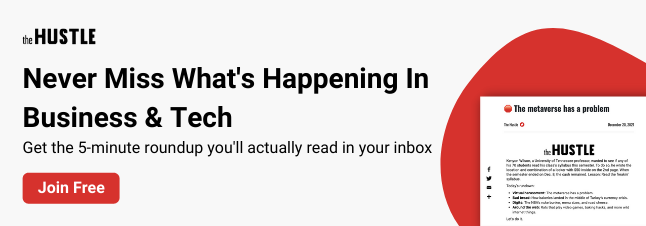We’ve all heard by now the main ways that AI will change business: It can write copy, answer search queries, and automate time-consuming administrative tasks.

But those capabilities are only scratching the surface, and businesses are already using AI for unique, forward-thinking applications.
According to HubSpot data, 68% of business leaders say AI could help their company scale in a way that would be impossible without it, and 65% believe that if AI is fully implemented in their company, their business would see unprecedented growth.
So, the race is on. And while AI innovations are quite literally changing every single day, below are some of the most interesting use cases for AI in business right now:
1. Autonomous Agriculture
With 2.6m people in the US working on farms and 8B people on Earth to feed, agriculture startups have been quick to discover new ways of using AI to make the farming process more efficient.
Artificial intelligence can be used in different ways throughout the farming process: from readying the soil and planting seeds, to monitoring, harvesting, and shipping crops.
Hedgehog, an agtech startup focused on mushrooms, uses AI and robotics to eliminate nearly all human labor needs from the process. Robotic arms powered by machine learning can do everything from readying the soil and planting the seeds, to gently harvesting and packing the mushrooms for shipment.
Other startups are doing the same with automated farming for different crops: Bowery Farming grows leafy greens while Sprout AI creates farming systems for other growers.
Crops are just part of the equation, with other companies focusing entirely on farming equipment itself, such as the humble tractor. Beagle Technology and Monarch Tractor are among startups automating farming machines to produce more crops faster and with fewer workers.
2. Augmented Reality Shopping
For businesses trying to sell physical products to customers online, properly representing the product can be a huge hurdle. Customers are wary of shopping online (will that couch really fit in my living room?) but more than 55% prefer to do so.
That’s where augmented reality paired with AI comes in. From interior design to fashion to beauty, virtual shopping allows customers to interact with and purchase products from the comfort of their homes.
Interior design platform Collov has users complete a style quiz before providing them with an AI-generated mood board. After selecting furniture from the mood board, the app takes users on a 3D virtual home tour so they can see the products in their space. It offers an AI generator, called CollovGPT, which allows users to upload photos of their space and generate renderings in specific design styles.
Sephora’s Virtual Artist lets people avoid long lines and crowded stores by using facial recognition to scan a customer’s face and an AI engine to find and suggest the most compatible products available in the store’s inventory.
Nike has Nike Fit which scans your feet, Ikea Place lets you see its products in your home, and Warby Parker’s Virtual Try-On lets you sample glasses from your couch.
3. Personalized Health Care
Some of the most exciting developments in the AI space are happening in the healthcare industry, and healthtech businesses are finding unique ways to solve problems that were previously impossible.
With an estimated 34% of health care costs associated with administrative tasks, AI could save massive amounts of time and money — and when it comes to health care, time could mean lives saved.
One of the most exciting applications of AI is in the research and development of new drugs. Healx aims to save time and money developing new drugs by instead analyzing millions of drug and disease data points to find existing drugs that could be used to treat rare diseases.
AI is also changing the world of medical imaging: Butterfly Network is making handheld, AI-powered ultrasound tech; Cleerly provides 3D images of the heart; and Enlitic is making a smarter radiology workflow.
Other startups are using AI to solve long-standing health disparities, like Acclinate, which uses predictive analytics to increase the representation of people of color in clinical trials. Others are developing tools powered by AI to diagnose symptoms, with Buoy Health's symptom checker being one such example.
4. Predictive Maintenance
One certainty of life is that things break. But AI algorithms can predict when maintenance is required before something goes wrong by analyzing data from sensors on industrial equipment.
There are companies dedicated entirely to predictive maintenance solutions that reach across industries, all aiming to help businesses optimize their maintenance schedules and reduce downtime.
Falkonry focuses on automotive, defense and intelligence, and oil and gas industries, among others. The company’s time series AI suite continuously monitors assets throughout all stages of a company’s processes, and can detect anomalies and emerging problems earlier than humans are able to.
SparkCognition similarly monitors both a company’s assets and their surrounding environments to alert stakeholders of emergent failures and recommend the best time to perform maintenance.
Uptake, Cognite, and Siemens are also among the ever-growing group of predictive maintenance companies working to make businesses more efficient and less susceptible to unexpected issues.
5. Food Recommendations
Satisfying customers in the food and beverage industry can mean more than catering to picky eaters: allergies, diets, and a constantly changing environment can make the food industry an uncertain one.
To keep up with ongoing change and to give customers what they’re looking for, AI companies focused entirely on intelligent food industry solutions are springing up.
One such company is Spoonshot, which bases its intelligence on 28k+ data sources, from food ingredients and products, to recipes, menus, research papers, and conversations on social media.
The company’s AI system #foodbrain — which uses natural language processing and computer vision techniques — then makes intelligent recommendations to answer the problem or question a business has presented, like helping a company come up with new product ideas, for example.
Tastewise follows a similar model for food and beverage companies, while Innit offers business solutions that help increase sales and boost loyalty, like personalized search and discovery, shoppable recipes, and nutrition assistance.




